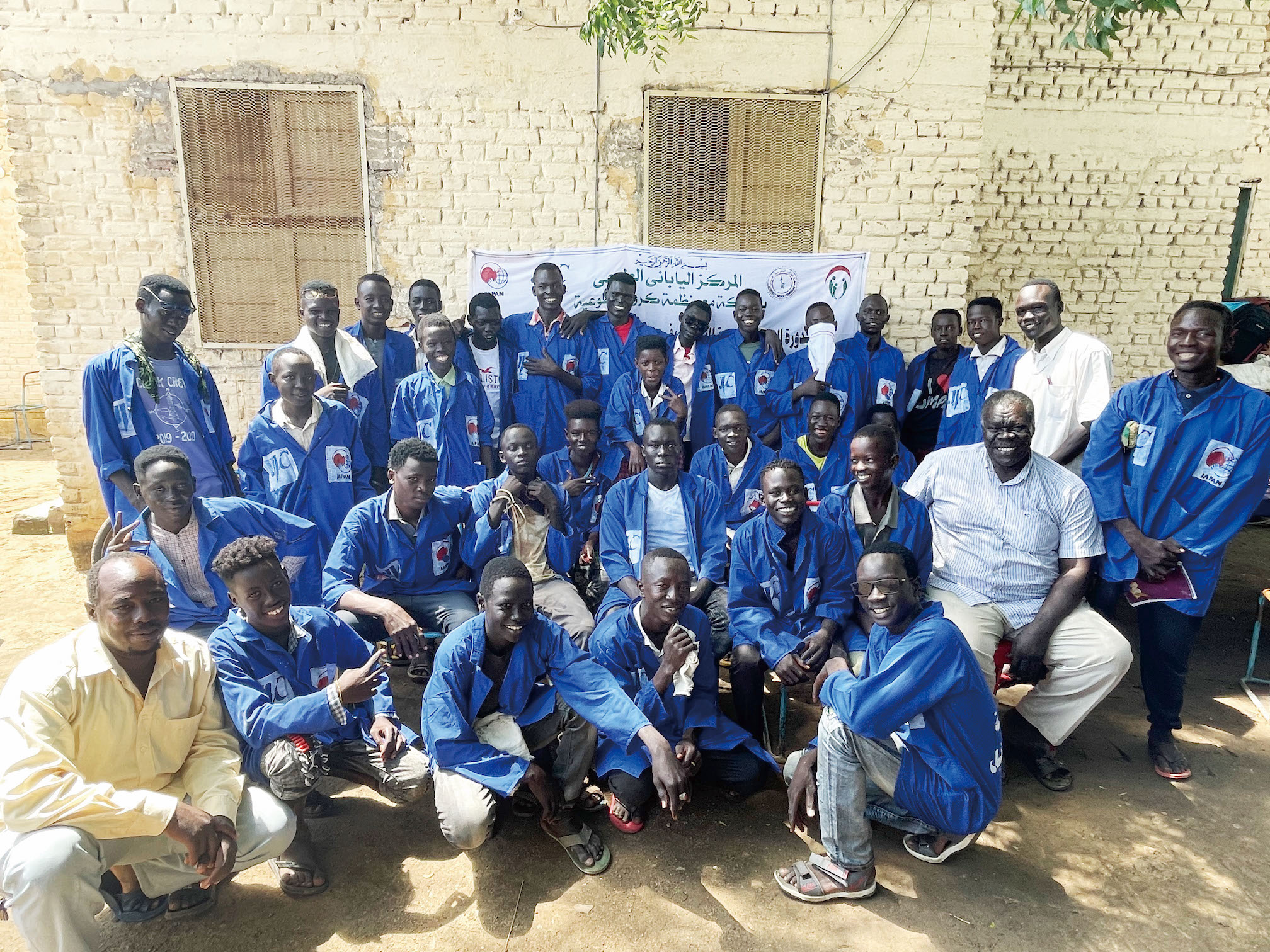
The participants in the vocational training learn the maintenance of three-wheeled vehicles (Kadugli Locality, South Kordofan State, Sudan).
Program Background
After the collapse of the military dictatorship, a transitional government was established in Sudan. While we can see some positive social changes, people have become increasingly frustrated with the deteriorating economy. In such a situation, the military regained power by restraining the civilian prime minister and other ministers in October 2021. In South Kordofan, where we are working, the negotiation between the government and the antigovernment rebel group also moved backward and tribal-political division remained there. In the area dominated by anti-government rebels, basic social infrastructures such as schools and wells are fragile, and many people continue evacuating to the area under government control. We have both worked in government and anti-government-controlled areas seeking to build a safe society beyond the divide.
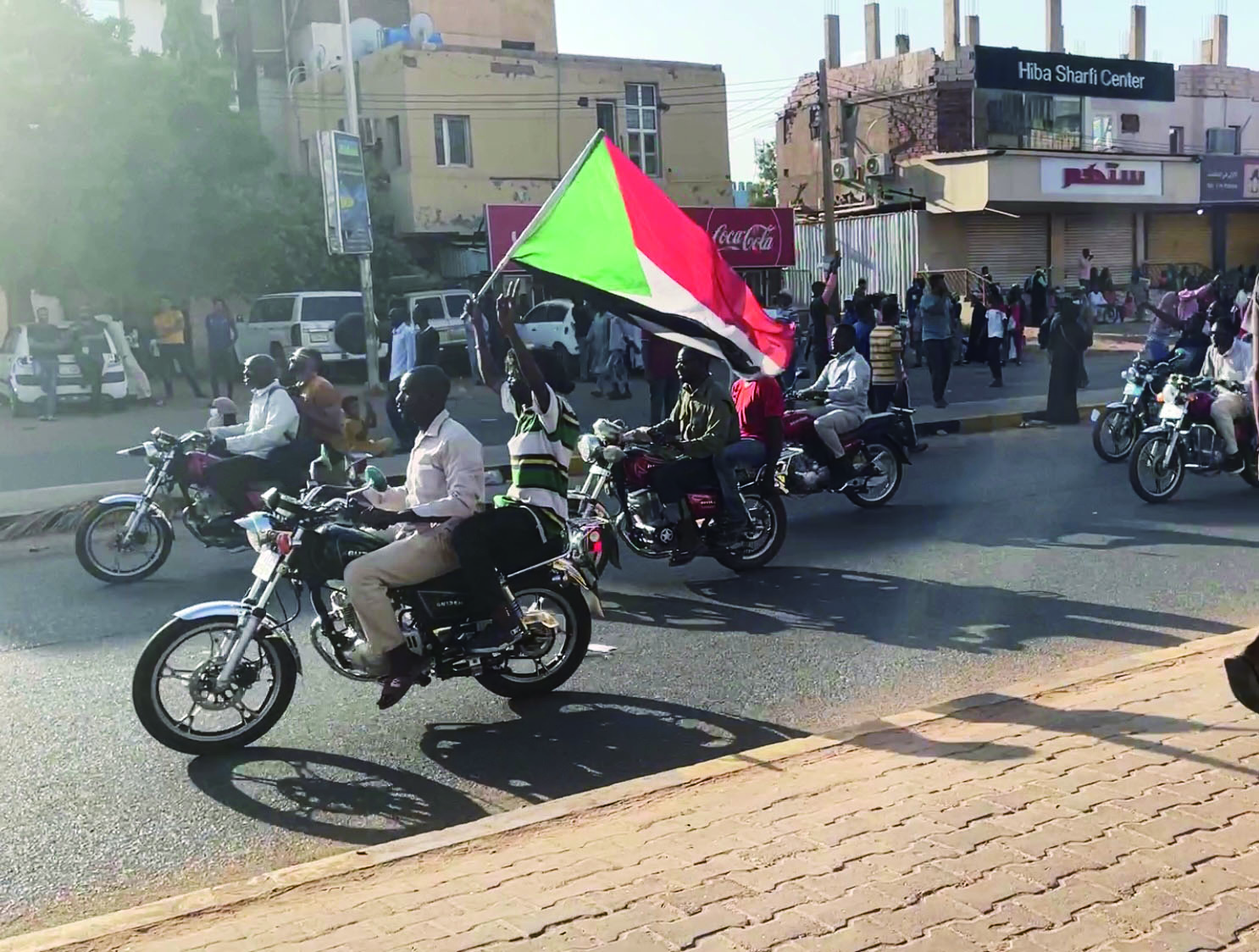
Civilians protesting against the military’s acquisition of power in October 2021. Protests and crackdowns by security forces still continue (Khartoum, Sudan)
Stories from Our Activities
Kadugli Locality, South Kordofan State, Sudan
“I quit elementary school due to family finances, but after participating in the welding vocational training, I gained knowledge and improved my skills. Now, I can make many kinds of things. I met various people who stimulated me through my work. The owner of the workshop where I was assigned recommended me to a public water supply corporation, and I have a chance to work there as an official staff. I’m very much looking forward to it because working at a large corporation would further improve my techniques.”
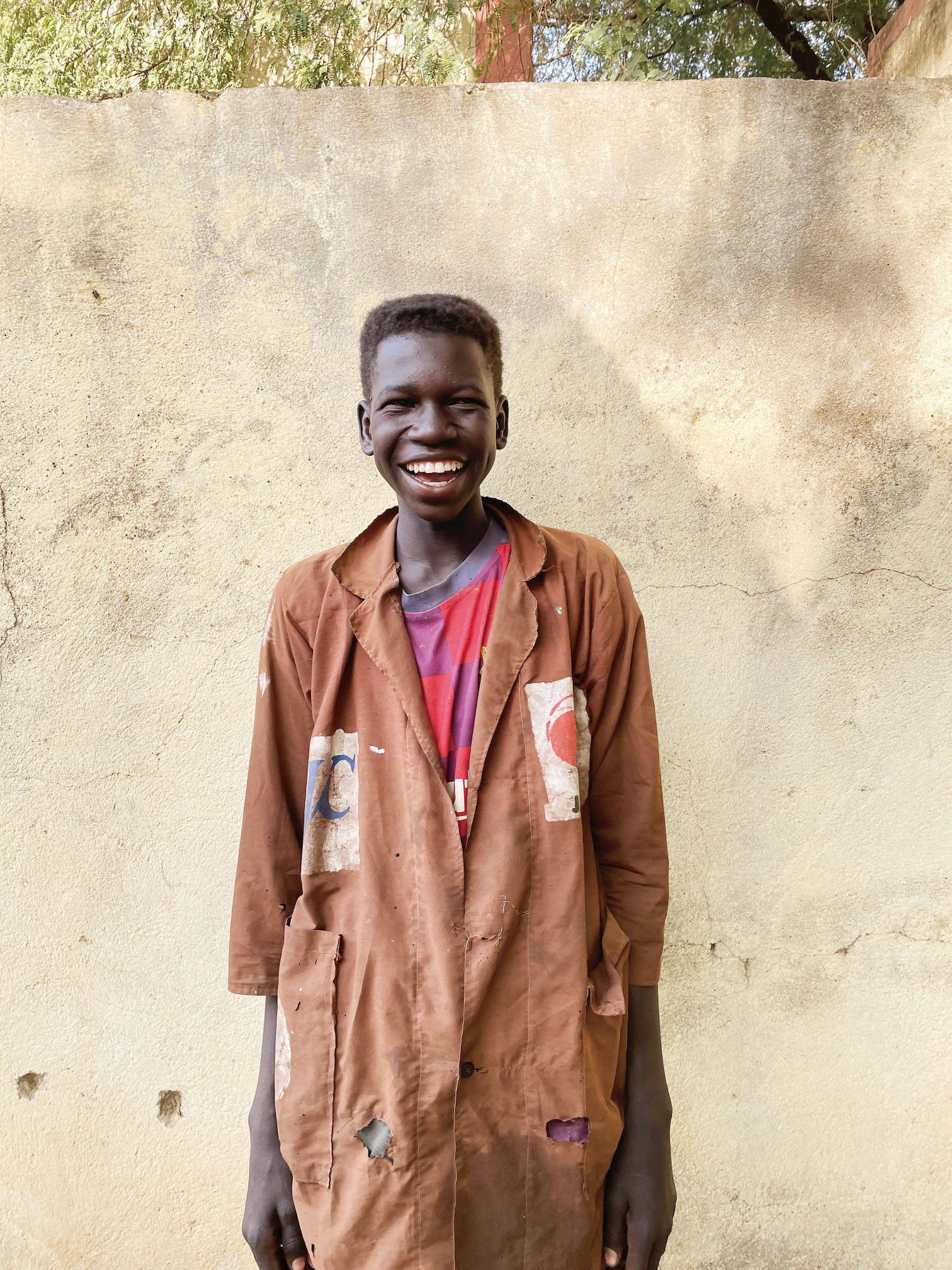
Mr. Khalid (16), a welding trainee
Buram Locality (one of the rebel-held areas), South Kordofan State, Sudan
“I took refuge in South Sudan when I was young because my school was closed due to air strikes. In 2020, however, the high school in the refugee camp was completely closed due to COVID-19, so I came back to Buram to continue studying. I am thankful for the support of the school and sanitary supplies. I can continue learning without missing any classes. I wish I could have a light to study at night. I’m eager to learn medical science to help my community after finishing school.”
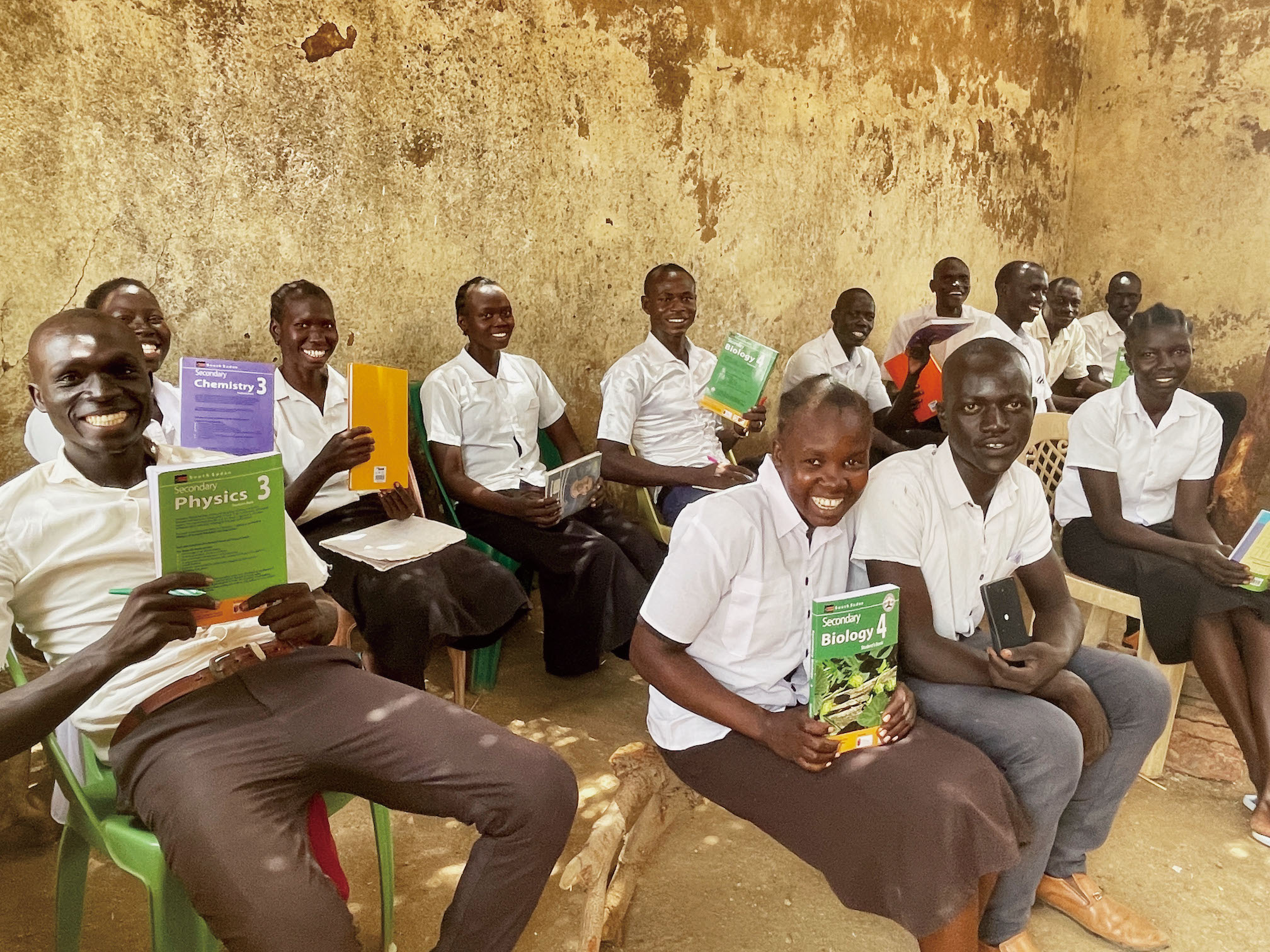
Mr. Sahafa (21), who continues studying in the sole high school in Buram Locality (front row, center)
Support for people affected by conflicts (Kadugli Locality, South Kordofan State, Sudan)
Outline of Activities
We administered supplementary schools mainly in the villages where refugees were coming from rebel-dominated areas, providing classes for each subject, extracurricular activities, and psychological care. At the same time, we strengthened the cooperation among public administration, schools, and parents to build an environment that allows children who transferred to formal schools to continue their schooling. For the young people in their late teens and older who had limited access to job opportunities, we provided vocational trainings for welding, maintaining three-wheeled vehicles, sewing, and food processing. We also conducted additional hands-on trainings in town workshops and life-skills training.
Observed Changes
All of the 291 children who had finished supplementary schools entered formal schools. Monthly monitoring showed that more than 95% of them continued learning. Regarding vocational trainings, 93 people completed the course. More than half of them got jobs in town workshops or public-sector corporations or made a living on their own. Before, they said that “It is unbearable to have free time all day without a job,” but now they are making use of what they learned and opening up their future by themselves.
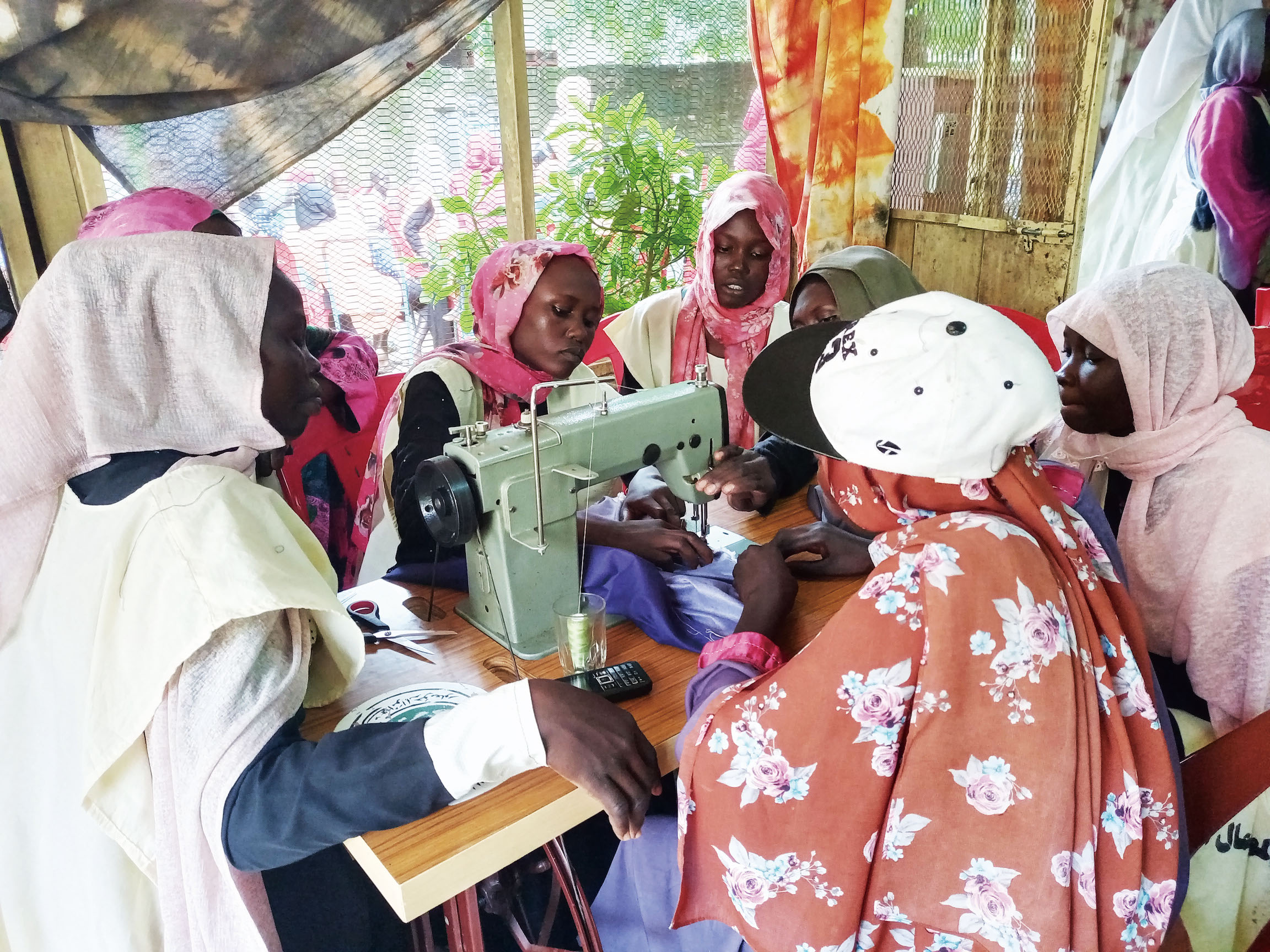
The sewing trainees are taking skills tests (Kadugli Locality, South Kordofan State).
Support for Sudanese refugees (Yida Refugee Camp, Ruweng Administrative Area, South Sudan)
Outline of Activities
In the Yida Refugee Camp, we completed our activities in 2021 after holding repeated discussions with the stakeholders on the support of school supplies for kindergartens and training of teachers which we had continued since 2013. We continued extracurricular activities and school lunch support for children whose families broke up due to conflicts or who had a difficult family environment. We also supported the family reunion of eight children.
Observed Changes
The kindergarten teachers who received trainings gained knowledge and improved their skills to treat children, administer classes, and think logically. In addition, PTA members more deeply understood the importance of education and took roles in repairing school buildings and supporting teachers.
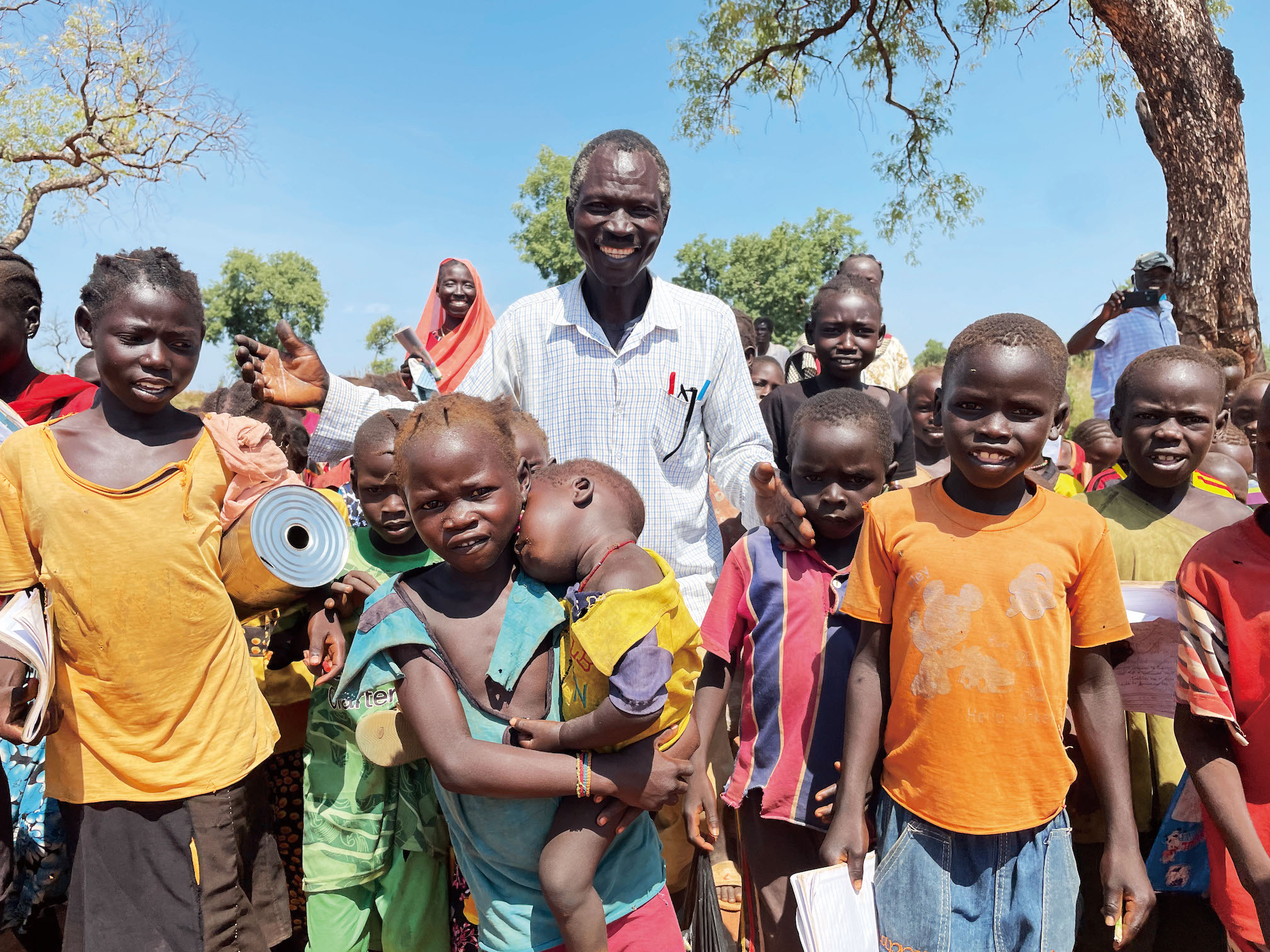
The principal and guardians are watching children in a kindergarten (Yida Refugee Camp, South Sudan).
Support for the conflict-affected people in rebel-held areas (Buram Locality, South Kordofan State, Sudan)
Outline of Activities
In several villages in the rebel-held area, we repaired seven wells that were destroyed and abandoned for a long time during the civil war. We enlightened people about the management of the well and hygiene habits. Continuing from the previous year, we provided support for school supplies and teaching materials in four elementary and high schools. In addition, we conducted a workshop for the villagers concerning violence due to gender and harmonious coexistence.
Observed Changes
Previously it took several hours to fetch water due to the distance from the water resources and congestion, but now access to safe water has greatly ameliorated. The burden on women and children has been lifted.
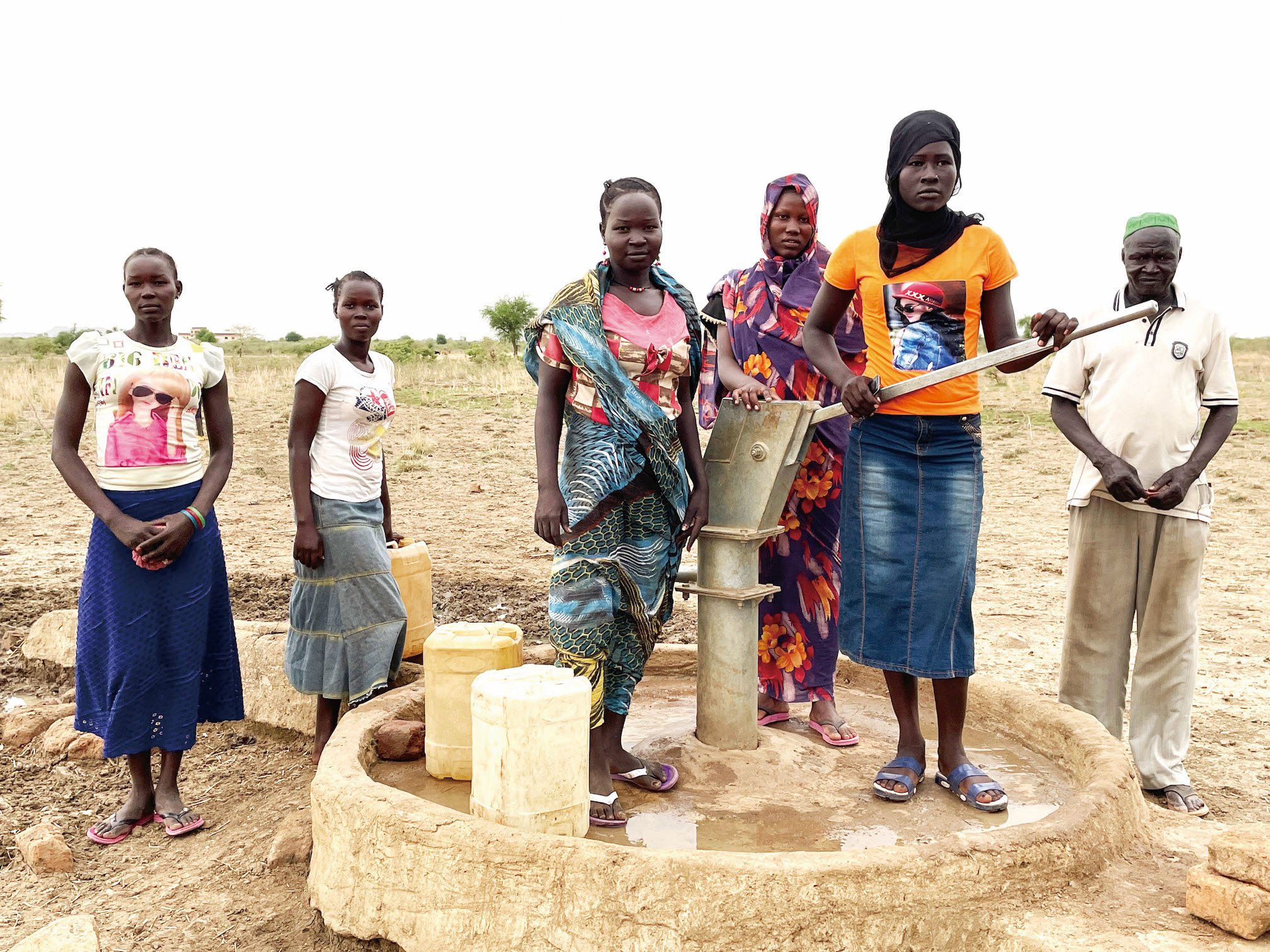
A well near a high school was repaired. “It improved the studying environment”, said a woman from the well management committee (second from right) (Buram Locality, South Kordofan State).
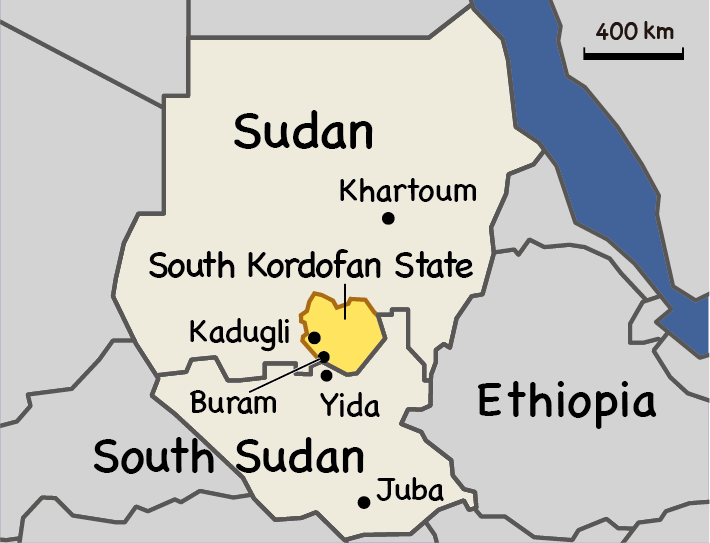
[Source: JVC Annual Report 2021]
Share This: